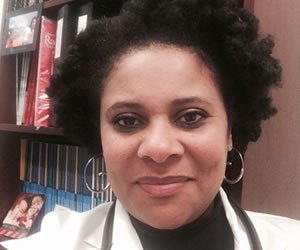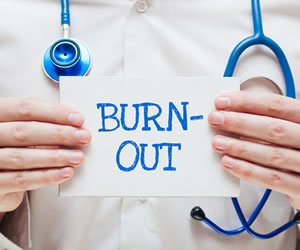Many students arrive at medical school with a bias that their liberal arts education has instilled, namely, that they should survey everything before deciding on their specialty. Before medical school, students matriculate at colleges that pride themselves on providing a diverse exposure to a variety of subjects: Computer science majors experience the canon of Great Literature before pursuing a life of code, and English majors can take “Physics for Poets.”
For a generalist student sampling from the buffet of medicine, it can be jarring to sit in lecture next to a classmate who declares on the first day of school that she intends to become an orthopedist. These early-committers appear to have whittled down their choices from day one. They magically become apprentices to a faculty member in their chosen specialty by the first quarter, have a publication by their first year, and seem to possess an intuitive roadmap for applying to residency that the generalist cannot read.
medicine
20 Questions : Karen M. Winkfield, MD, PhD, Radiation Oncology
Karen M. Winkfield, MD, PhD, is a radiation oncologist with Massachusetts General Hospital, and she divides her time among clinic research in health equity and hematologic malignancies, teaching as assistant professor of radiation oncology at Harvard Medical School, and a clinical practice treating patients with lymphoma, leukemia, myeloma, myelodysplastic syndrome and other blood cell dyscrasias, and breast and gynecologic malignancies.
Dr. Winkfield received her bachelor’s degree in biochemistry from Binghamton University (1997), and her PhD in pathology (2004) and MD (2005) from Duke University. She completed an internship in internal medicine at Duke and a residency in radiation oncology at Harvard. Dr. Winkfield co-founded and directs the Association of Black Radiation Oncologists, and she’s been published in numerous journals, including the Journal of Biological Chemistry, Journal of the National Medical Association, International Journal of Radiation Oncology – Biology – Physics, Oncology, Journal of the American Academy of Dermatology, and New England Journal of Medicine. She also currently chairs the Health Access and Training Subcommittee for the American Society For Radiation Oncology and is chair-elect of the Health Disparities Committee for the American Society of Clinical Oncology.
The Risk Involved in Going to Medical School (and How You Can Subvert It)
Most people wouldn’t normally think of medical school as a risky investment. Sure, there are … Read more
The Med-Peds Residency: Big and Small, We Care for Them All
As third year medical students you’re rotating through your general specialties and you think you’re seeing familiar faces but in new places. Isn’t that your newborn nursery resident who assigned APGAR scores, now leading the code in the medical ICU? Some of you may have had similar déjà vu experiences but rest assured, your mind isn’t fooling you. At 79 programs across the USA and Puerto Rico, Combined Internal Medicine and Pediatric residents walk (briskly) through the halls of the hospital carrying both PALS and ACLS cards in our coat pockets. Our minds have been shaped to think broadly and decisively. We carry an air of calmness from our critical care rotations yet we know when to appropriately turn to our goofy side to connect with our patients. Through four years of versatile training, we are training to be the 21st century physician.
The Combined Internal Medicine-Pediatrics (commonly referred to as “Med-Peds”) is a four-year residency-training program that leads to dual board certification in Internal Medicine and Pediatrics. While there are many combined training programs offered in the US, the Med-Peds residency is by far the most ubiquitous and popular program available. During the four years of training, residents undergo a rigorous schedule of rotations ranging from adult and pediatric wards, MICU, PICU, NICU, CCU, Med-Peds clinic and specialty electives. By graduation, residents will have completed a total of 2 years of adult and 2 years of pediatric training. The frequency at which residents switch from one “side” to another changes depending on the individual residency program. The end product is the same: Individuals who are prepared to deal with acute, complex, chronic and preventive care for both adult and pediatric medical conditions. The broad training creates an endless list of career possibilities. We each carve out a niche that best fits the career interest we have in mind.
The F-Word: Your Reaction to Failure in a Lab Matters More Than You Know
There is only one guarantee in research: sometimes things fail. It doesn’t matter what your major is, how much experience you have, or whether your research is basic, applied, clinical, or translational. A research project will test your reliance, discipline, motivation, and, at times, it might make you feel like giving up. However, when your project hits a wall (and most do at some point), how you handle the disappointment is the key to your future success. Your reaction will also influence your labmates and how much help they will offer to get you back on track.
Unfortunately, some undergrads let their frustration get the better of them when faced with failure in the lab. Not only does this make their experience less rewarding, but it’s unpleasant for the other lab members, and that can lead to unintended consequences for the undergrad.
Fifty Shades of Care: Why Doctors Need to Pay More Attention to their Kinky Patients
Reposted from here with permission. On Valentine’s Day weekend last year I found myself at Paddles, the local … Read more
Five Ways to Make Your Audition Rotation in Anesthesia (or Other Specialty!) a Success
It is that time of year again. Medical school students across the country are preparing applications for residency and pursuing audition rotations at residencies they are hoping to woo into an interview and hopefully to match into their program.
Any audition rotation is a challenge. This is especially true for the anesthesia audition rotation. For medical school students who look great on paper, the audition rotation can either confirm they are a great candidate or confirm the program should not interview/rank them. For medical school students who do not have a stellar record, the audition rotation can open up doors.
What I Learned During My First Semester of Medical School
Students will feel a variety of emotions during the weeks and days leading up to the start of medical school, ranging from excitement to anxiety. Below are five key things I learned during my first semester in medical school, some of which I wish I had known before I began:
1. Every student is unique, so do what works best for you
Many people equate the preclinical years of medical school to standing before a water hose and attempting to drink all of the water that pours from it. The vast amount of information that you will be exposed to may seem overwhelming at times, but it is important to remember that generations of physicians have successfully completed their medical training. There is a way to manage this wealth of information.
How to ace your first patient encounter
As a medical student, you spend four years of college and the first two years of medical school studying non-stop for what feels like thousands of hours, cramming your brain with knowledge. But when the time comes to conduct your first face-to-face patient encounter, your confidence is rocked by the challenge of having to establish rapport, extract all the relevant medical history, and complete a physical exam, all while showing compassion, answering patient questions, and developing a differential diagnosis list and treatment plan in 30 minutes or less. Clinic is even worse with a meager 12 minutes scheduled for each patient encounter.
Top 5 Questions to Ask Your Pre-Health Advisor
If you’re interested in a career in medicine, one of the most important and helpful people will be your college’s pre-health advisor. There’s a lot of planning and preparation to do before you’ll be ready to apply to medical school, so it’s a good idea to meet with your advisor early. Make an appointment or go to drop-in hours at least once a semester to keep in touch about your classes and activities. When your advisor knows you well, they can help you find opportunities relevant to your interests and strategize about when and where to apply.
Here are some important things to ask about when you meet:
1. What classes should I take and when?
Your advisor can help you create a plan for which pre-requisite classes you should take and how you should schedule them. This will help you develop a timeline for when you’ll be ready to take the MCAT® Exam and apply to medical school. Different medical schools have different requirements, so your advisor can help you determine if you’ll need a post-baccalaureate or other program to help meet coursework requirements.
2. Are there any campus pre-med clubs, email lists, or workshops?
Many colleges have student run pre-med clubs that are a great way to make friends, form study groups, learn about local opportunities, and stay motivated. Your advisor may also send out information through an email list or social media and may hold workshops on various pre-med topics.
3. Does our school have a specific process for writing Committee Letters or Letters of Evaluation?
One of the most important and influential components of your application is the Committee Letter or Letters of Evaluation that you’ll receive from faculty and staff members at your college. The Committee Letter is a document or collection of letters written on your behalf to tell medical schools about you, your commitment to medicine, and your strengths. It’s important to know your school’s procedure so that you can begin early and have your letters sent in on time. Some medical schools will not consider your application complete until they have this letter.
4. Do you know of any medically-related opportunities in the community that will help me get experience?
Some colleges have relationships with local hospitals, clinics or other community-based centers that may allow you opportunities to shadow, volunteer, or work in a lab. There may also be a connection with a local medical school, or another organization, that has a pre-med summer or pipeline program. Your advisor will likely know about many of these and be able to help you decide which might be right for you. They’ll also be able to steer you away from places where other students may have had negative experiences. Be sure to check with them each semester as opportunities may come available at different times of the year.
5. Do you think I should take a gap year before starting medical school?
More and more students are taking a year or more in between undergrad and medical school for various reasons. Last year, more than 50% of accepted applicants had one or more years between graduating college and applying to medical school. Your advisor can help you decide what’s best for you and discuss what opportunities might make you a more competitive applicant.
Whether you’re just starting to think about medicine or you’ve already applied, your advisor can be a great resource throughout the process. For more tips, see AAMC’s Partnering with your Advisor.
Chronicles of a Med Student: And So It Begins!
The minute the tasseled hat flew off of my head after “Pomp and Circumstance”, I knew I was no longer a kid. What a startling realization–one I’m sure many of you have experienced–for someone who has led a fairly sheltered life! Let me confess one little thing: I was scared. Not just an ordinary level of scared. The kind of scared that catches you by surprise to the point where you start bawling on your graduation day with your bedazzled cap and a brand new bachelor’s degree in your hand. I was taking a gap year and had no idea which direction my life was going to go next. I knew what I had been working for my entire life: medical school. But this was not the feeling I had anticipated when I completed my undergraduate career. I had practically planned my life out since I was in middle school: I was going to go straight from high school to college to medical school to a career. But things had changed; I had grown a little tired of the academic life and wanted to experience something new. I wanted to live a little! But figuring out what to do next and how to do it was intimidating.
10 Things to Expect From Your Summer Undergrad Research Experience
For some undergrads, this summer will be spent lounging on the beach reading and hanging out with friends. Days will be spent blissfully sleeping until a parent annoyingly insists that it’s time to get up and do something.But alas that’s not for you.
Physician Employment Contracts: The Good, The Bad and The Ugly
In both hospital[1] and group practice settings, physicians are regularly asked to sign employment contracts that the group or hospital may describe as “standard”. While physician employment contracts can define the terms of the employment relationship in helpful ways, they can and often do contain clauses and obligations that may have a long-lasting impact on the physician. When negotiating a contract with a potential employer, physicians are well advised to take a hard look at key contract terms, including termination provisions, non-compete clauses, professional liability insurance terms and indemnification obligations, and negotiate to remove or revise overly burdensome terms prior to the start of the employment relationship.
10 Signs You're an Intern
1. 2 Days off in a row = Vacation!
In high school, I looked forward to winter break, spring break, and summer break. In undergraduate, it was the two weeks off over winter break and the week off between quarters. Anything short of a week off felt like barely time to catch your breath – definitely not a vacation. As a medical student, there was still winter break and most bank holidays. Now, as an intern, any time there are two days off in a row, what most of the rest of my non-medicine peers would simply call “the weekend” constitutes the most luxurious vacation.
5 Reasons Intern Year is Better Than Medical School
I had a certain level of (I thought well-justified) terror anticipating the start of intern year. No longer able to hide behind the protective “I’m just the medical student” blockade, I was worried about not being able to live up to the burden and the privilege of being someone’s doctor. Third year was rough and I could only imagine the horrors that awaited me as an intern. Yes, it has been a difficult year, filled with long hours and intense days. However, what I found was that contrary to my fears, intern year has been so much better than medical school. If you recently walked across the stage and accept your diploma, congratulations! Here’s what you have to look forward to:
Lost in Translation
Republished with permission from here. In the rest of the house, the noise of the party … Read more
What's On Your Summer Reading List?
For most students, summer break is an opportunity to do many things for which there … Read more
5 Mistakes I Made in Med School (So You Don’t Have To)
It has been nearly a year now since I walked across the stage at Carnegie Hall to accept my diploma. Now approaching the end of internship – let’s say that again, one more time, with appropriate emphasis: the end of internship – I can look back with a little more objectivity on my four years of medical training. As with everything else, hindsight is mostly 20/20 and, while there are a lot of things I did right in medical school, I now realize I made some mistakes, or, if they weren’t outright blunders, at least things I would do differently if I had to do it again. Let that these not be your mistakes:
Up in Smoke: The Challenges of Physician Burnout
The days are long, the nights short – unless you’re on call or night float, in which case that is reversed. Regardless of where you are in your training, whether in medical school or already out of residency, there will be days when it all just feels like too much. Too much work, too much emotional energy expended, too much illness. Too many petty tasks or meaningless phone calls or purposeless turf wars. Hopefully, those times will be few and far between, buoyed by the days where you make a tricky diagnosis, have an appreciative patient, or just get out of the hospital with daylight left and go for a run. However, for a significant number of physicians, these despondent days stack one atop the next, stretching into weeks where they feel to exhausted to invest energy in their patients, let alone themselves. These individuals are likely suffering from burnout.




















